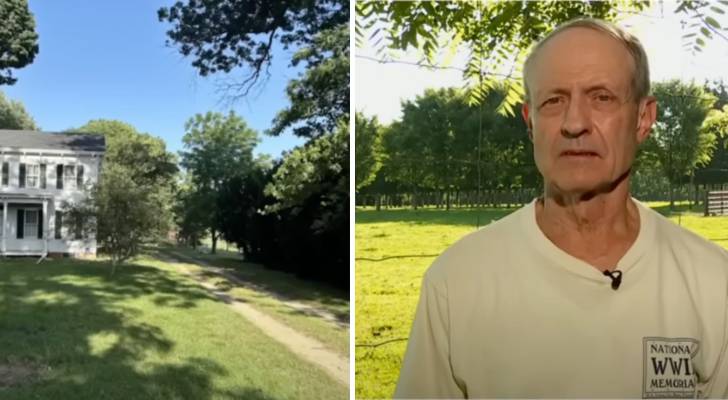 A New Jersey family is fighting to save their 175-year-old farm from being seized by the local government for an affordable housing project. Andy Henry and his brother Christopher own the 21-acre farm in Cranbury, land that has been in their family since 1850.
A New Jersey family is fighting to save their 175-year-old farm from being seized by the local government for an affordable housing project. Andy Henry and his brother Christopher own the 21-acre farm in Cranbury, land that has been in their family since 1850.
The Fight for Family Legacy
The Henry family's ordeal began when they received a notice on April 24 informing them of the town's decision to take their entire property. This came as a shock to the family, who have been stewards of the land for generations. Despite their resistance, the town has not relented. Initially, the town aimed to take all 21 acres. Now, they are proposing to take half of the land, leaving the family with their house but rendering the farm unsustainable for their livestock, which includes at least 40 cows and many sheep.
Cranbury Township intends to use eminent domain to seize the Henry family farm, paving the way for a developer to construct state-mandated affordable housing. Eminent domain grants the government the authority to take private property for public use, provided that just compensation is given to the owner. However, this process occurs without the owner's consent.
National Attention and Support
The Henry family's plight has garnered national attention, including from U.S. Secretary of Agriculture Brooke Rollins. Rollins expressed her support for the family's legal battle. She emphasized her commitment to fighting against government overreach in family farms. Rollins stated that the USDA is exploring all legal options to assist the Henry family.
The Affordable Housing Crisis and Property Rights
The Henry family's situation highlights the growing tension between development goals and property rights amid the escalating affordable housing crisis. As home prices and rents continue to rise, local governments are under pressure to meet state housing mandates, leading to conflicts with property owners.
The Broader Housing Market Context
The affordable housing crisis is a nationwide issue with complex underlying causes. While some, like former President Donald Trump, attribute the problem to factors such as the Federal Reserve's interest rate policies, many experts point to a fundamental lack of housing supply as the primary driver.
A recent analysis suggests a significant shortfall of homes in America's housing supply, a problem that could take years to resolve given the current construction pace. Despite high prices, real estate remains a desirable asset due to its tangible nature and historical performance during inflationary periods.
- Rising Home Prices: Average home prices have increased significantly in recent years.
- Inflation and Property Values: Property values often rise with inflation.
- Rental Income: Rental income tends to increase, providing landlords with an inflation-adjusted revenue stream.
Investing in Real Estate: Alternatives to Traditional Homeownership
For those finding traditional homeownership increasingly out of reach, alternative investment options exist, such as investing in shares of vacation homes or rental properties. Platforms like Arrived offer the opportunity to invest in vetted properties with potential for appreciation and income generation, with investments starting as low as $100.
Another option for accredited investors is First National Realty Partners (FNRP), which allows diversification through grocery-anchored commercial properties leased by national brands. These properties often come with triple net leases, minimizing tenant costs for investors.
The Vanishing Farmland
Henry noted that his farm is now surrounded by warehouses, reflecting a broader trend of farmland disappearing due to urban sprawl. Agricultural land is being converted for commercial, residential, and industrial purposes. This decline in farmland has significant implications for food production and the agricultural economy.
- Decreasing Acreage: The amount of agricultural land in America has decreased significantly over the past few decades.
- Investor Interest: Savvy investors are recognizing the value of farmland as a finite resource.
- Rising Farmland Values: U.S. farmland values have steadily increased.
Opportunities in Farmland Investment
Investors can participate in farmland investment without needing to purchase an entire farm. Platforms like FarmTogether allow qualified investors to buy stakes in U.S. farmland, partnering with experienced local operators to manage the land. This provides opportunities to earn income from leasing fees and crop sales, as well as potential profits from land appreciation.


No comments:
Post a Comment